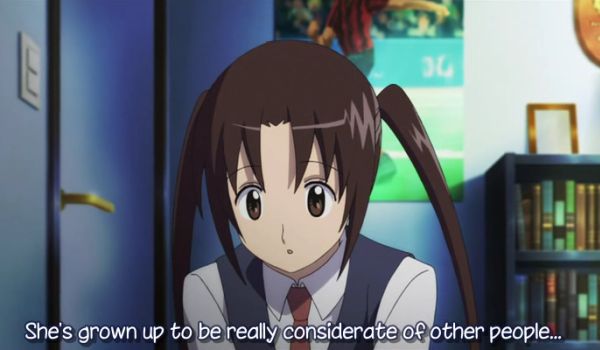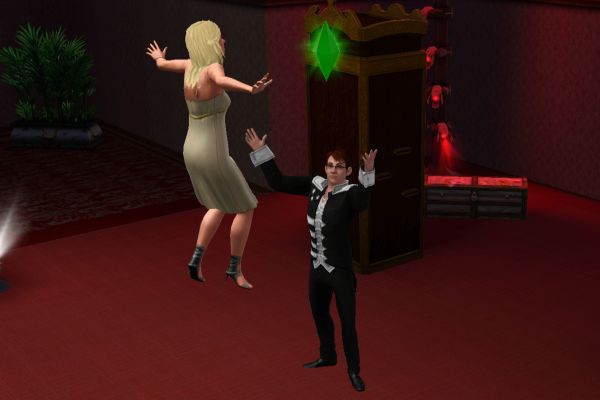
The Samsung Galaxy Tab 7.7 with its AMOLED screen is much clearer and more vivid than ordinary screens, although this picture taken with flash does not really show either of them at their best.
Yesterday during the lunch break I went to buy the Galaxy Tab 7.7, in my humble opinion the best tablet / datapad available at this time. On my way, however, I thought of the poor starving children in Africa, and turned aside. I was almost back at the office when I realized that Samsung almost certainly does a lot more for Africa than I ever would even if I tried. Which I don’t, at least in an economic sense.
Today I actually bought this thing. It is sleek and lightweight, even though it has a back plate of light metal instead of the plastic that Samsung normally uses. Samsung has taken some flak for the “cheap feeling” of their plastic chassis, even though it certainly withstands more falls than even the Gorilla glass used in the front. I honestly don’t see their or most gadgets surviving any treatment that would break the usual lightweight and durable plastic. But this is their showcase product, it seems, so they threw in the metal plate. Luckily it is thin enough to add very little to the weight. Compared to the original 7″ Galaxy Tab, the 7.7 is noticeably lighter and very comfortable to hold for reading.
The crowning piece however is the display, using the AMOLED technology which delivers unparalleled vivid colors and the blackest blackness available in any screen today. It also seems to be gentle on the battery. The resolution is 1280×800, which may seem like a modest upgrade from the 1024×600 used in all their 7″ tablets, yet is the same as their 10.1″ Galaxy 2 and with a better display. The new iPad (3) has it beat on screen resolution, but is (at least for now) not available in one-handed size.
The Galaxy Tab 7.7 is definitely one-handed most of the time for reading. It is not too heavy to hold in one hand, although you will need another hand to actually use it for anything more than reading books. It is incidentally a beautiful e-book reader, the black of the letters very black and the sepia of the pages very sepia. Well, that is how I like them. Your pages may vary.
I generally use the tablet in portrait mode, although if you use it to watch movies or look at pictures you will probably hold it in both hands in landscape mode. Because of this preference, I use SwiftKey 3 instead of SwiftKey Tablet 3 as my keyboard. It is not free, but very affordable. (Actually I use the 3 Beta today, but by the time you read this the final version is on sale. If you read this the first week, it is at half price, but it is well worth the price of a couple hamburgers anyway.) SwiftKey Tablet is made for typing with two hands, and has the keyboard split with half on the left side and half on the right. This is an abomination in my sight and looks just unnatural. Then again I have used QWERTY keyboards since I was 6 or so, so it is almost up there with potty training when it comes to ingrained attitudes.
The tablet comes with Samsung’s own TouchWiz shell on top of Android “Honeycomb”. To be honest, I don’t see this as much of an improvement. Android 4 “Ice Cream Sandwich” is better than any of the two, and if I feel extremely energetic one day I may root the tablet and install unadorned ICS on it. For the most part, however, I don’t spend a lot of time in the operating system, but mostly use it to start the apps I use regularly.
The apps I use regularly are not the ones that come pre-installed from Samsung, although I do use the ones that come from Google. The “improvements” from Samsung are as usual nothing of the sort, in my opinion. I would rather they did not waste any of the tablet’s 16 GB on this, but I am not all humans in the world. Still, I think we can agree that Samsung comes at this market from the hardware side. Their software does not have the power to rouse men’s heart that Apple’s has.
Be that as it may, I soon downloaded my usual apps and got “productive”. If this is your first time using a tablet after you are familiar with smartphones, you may be looking for the menu key, either in hardware or on the screen. There does not really exist such a thing in Android 3, but clicking on the status display bar in the lower right will reveal the setup choice for the phone as such, while individual programs usually have a visible menu symbol in a corner, typically the upper right (although Spotify uses the upper left). Legacy apps from smartphones may have a menu symbol in the lower left row along with the back, home and task manager soft keys. And some few legacy apps may not work properly if at all, but this is rare.
One thing that did not work properly was connecting to an old SparkLAN WX-6615 wireless router at work. At a distance of two fairly thin walls, it was easily good enough for the Galaxy Note and an older, cheaper LG phone, not to mention two laptops I have tested it with. But the 7.7 timed out loading even fairly simple web pages, and had to try multiple times to get new email. So that was a bit of a letdown. It really made me wonder whether I have got another “Monday machine” – remember, generally it is the customer who does quality control beyond turning the machine on to see that it boots up – or whether the Galaxy Tab 7.7 generally has worse Wi-Fi receptivity than anything that has been made the last five years. That seems unlikely for a high-end product designed to show off Samsung as the new hi-tech leader of the world.
I switched to 3G from my phone provider (the model comes with room for a SIM card) and it worked beautifully. But when I switched back to Wi-Fi, the problems returned. Next I enabled ad-hoc wireless hotspot on the LG and placed it mere inches from the tablet. This time it had no problem connecting and loading. And then when I turned off the hotspot on the LG, the tablet automatically remembered the wireless router and reconnected to it, without stopping by 3G. And now it loaded web pages quickly, even playing YouTube with only a short buffering. Clearly the problem is not with the Wi-Fi hardware, then. I don’t know whether this problem will happen with another Samsung Galaxy Tab 7.7, or even with another SparkLAN WX-6615, not to mention other Wi-Fi sources. But it is definitely worth mentioning, in case someone searches for a similar problem in the future.
Because I totally write this to inform and entertain, not to show off my living in the zeroth world or anything. That’s not something I am proud of. It is accidental, not essential, as the ancients would say. Of course, the ancients did not have as many gadgets as we have. That may be why some of them became wise eventually.








